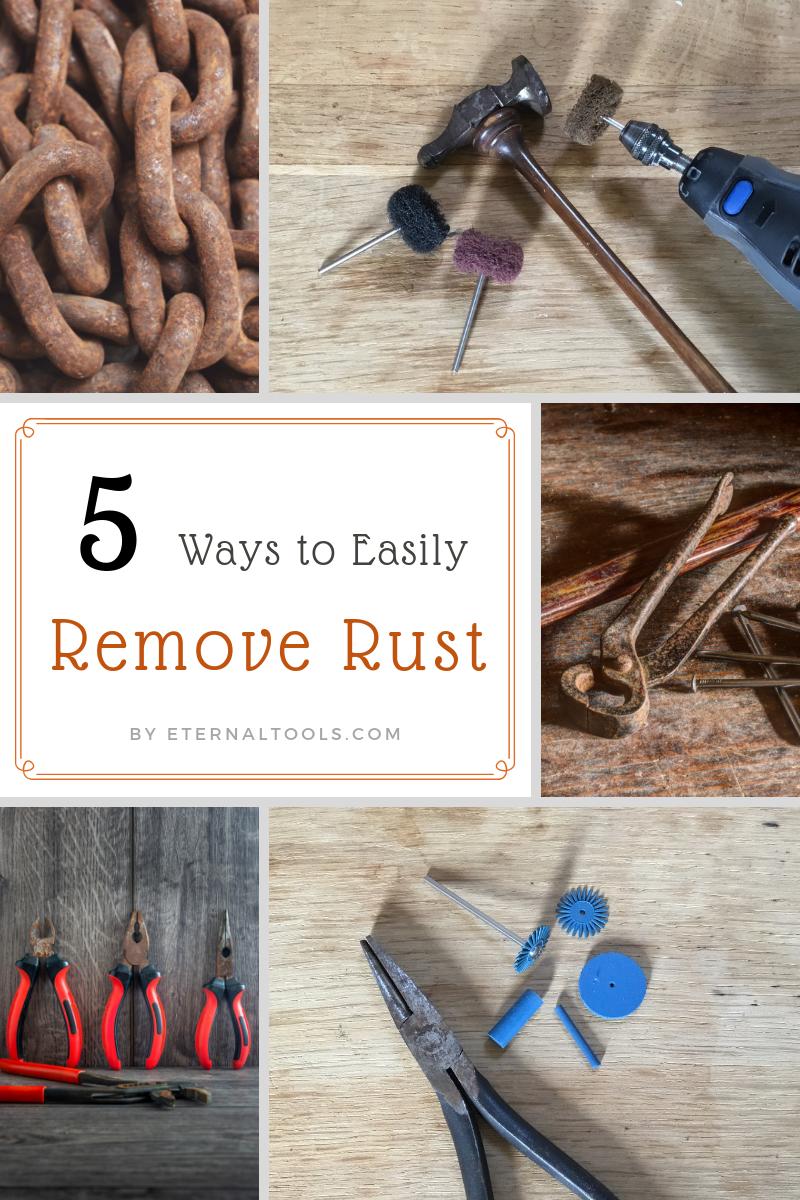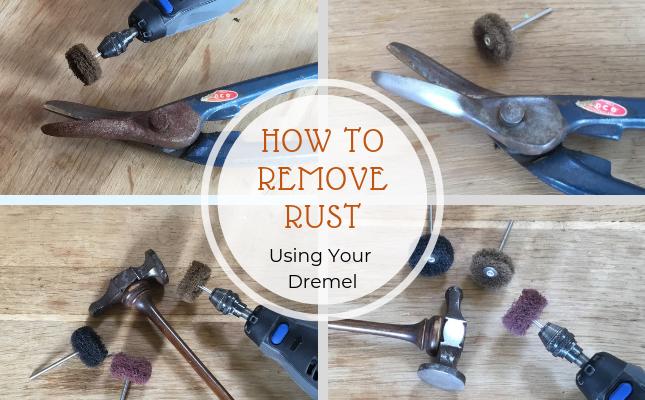i have a snowblower i want to remove the rust buildup on the machine what product can i use

What is Rust?
When a piece of Iron, Atomic number 26 alloys or steel is exposed to water and oxygen information technology has a reaction called oxidisation. The appearance of this corrosion is a red-brown flaky coating and is commonly referred to equally Rust.
Humidity and temperature with Oxygen can also cause rusting so don't retrieve that only because your jewellery tools are kept inside that they won't autumn foul of rusting.
Do All Metals Rust?
All metals are susceptible to corrosion in some form or another, but the term 'Rust' is only used when referring to Iron, Atomic number 26 alloys and steel.
Rust vs Tarnish?
Now we've established which metals will rust we tin eliminate these and say that every other metal will corrode or tarnish, to some degree or other.
Copper is the common culprit in well-nigh things we see that have tarnished. The Patina (greenish coloured staining) is caused past the copper oxidising and this results in the build upward of this tarnished layer
Sterling silver in particular is made up of a mixture of metals including copper which is why y'all sometimes find a ring of dark-green colouring on your finger.
Metals That Practise Not Rust
Aluminium, Brass, Bronze, Galvanised steel, Stainless Steel, COR-TEN steel, Copper, Titanium, and noble metals such as Aureate, Silver, and Platinum are all metals that do not rust. They can corrode, stain, or tarnish, but they volition not rust.
How to Remove Rust from Metal - 5 quick ways
There are numerous ways to remove rust, oxides and corrosion from just nearly annihilation. Some methods use household cleaning products, aluminium foil and acid, and some are rotary tool attachment'south for an piece of cake, quick and mess-free removal of rust. Take a await at the listing below for further information.
ane. Fiberwheels. Abrasive Vitrify Wheels
- This is by far the quickest and fuss-free method of removing rust from your metal items.
- Protective gear on (googles, middle mask etc)
- Attach a Brownish (coarse) EVE Fiberwheel Abrasive Buff wheel into a rotary tool such as a Dremel set the speed to approximately 7,000rpm.
- Gently move the abrasive across the metal and within seconds the rust is gone.
- If you want to bring the metal dorsum to it's original lustre utilise the Black (medium) to pre-polish, followed by the Cherry (fine) for a final polish and to return the metallic to it's original smooth.
See the before and after images, along with the very short video beneath:

two. Annoying Rubber Polishers
- Equally equally quick and like shooting fish in a barrel equally the Fiberwheels, and with no mess, are these EVE rubber annoying polishers.
- They come in all shapes, grits and sizes merely for the quickest way to remove rust from your metallic jewellery tools insert a 500 dust (Blue, very coarse) EVE Technic Polisher in your rotary tool and watch the rust disappear!
- They come in many shapes, mounted, and unmounted so you tin can choose to use a 3mm pivot to get into the tight corners for instance, or a radial bristle disc - great for intricate areas. Choose a large cylinder for large surface areas, or a smaller cylinder shape for smaller rust removal jobs from metallic objects.
- As with the Fibre abrasive wheels mentioned to a higher place, you can then use the finer grit rubber polishers within the same range to bring the metal back to it's original mirror shine.
See the earlier and after images, along with the very brusk video beneath:

3. Steel Castor Bicycle or Aluminium Foil
An effective method of rust removal is past using steel and aluminium as an abrasive.
- Aluminium Foil - Tear off a small piece of aluminum foil, dip information technology in water or vinegar and rub over the rusted parts.
- Use a Steel Brush wheel or a Steel Wire Pen Brush in a rotary tool such as a Dremel.
- These are non equally effective as the methods described above, merely have long been used every bit rust removers.
four. Salt and Lemon Juice/Vinegar
- Acidic solutions such as lemon juice and vinegar, along with a piddling chip of common salt applied to the rusted areas, are another DIY method of rust removal from your tools. Leave for a few hours and so remove. The following is not a method we've tried and tested only apparently the oxalic acid in a potato volition also dissolve rust away.
v. Baking Soda (Bicarbonate of Soda)
- The rusted item can either exist dusted with baking soda, or made into a paste with water or vinegar.
- Apply to the areas and leave for a an hour or so then clean off with a brush.
- Marking Lovick from the Spotter Repair Aqueduct shows this method in his excellent video: Service and repair of a Rusty Valjoux 7750 based Breitling Watch. Take a await at the Youtube video here. He uses a mixed paste of soda and cleans off the watch parts with a toothbrush peg wood.
How To Prevent Metals From Rusting
The all-time way to bargain with rust of course is to avoid it in the first place so keep your tools dry and out of humid and damp conditions.
Tools should exist regularly cleaned, oiled and maintained.
Other methods to prevent rusting are protective finishes practical to steel such as Bluing (often used on small steel items for watches and clock mechanisms) powder coatings (These could be acrylic, vinyl, epoxy etc) or Galvanizing (molten zinc blanket)
Source: https://www.eternaltools.com/blog/how-to-remove-rust-from-metals-in-seconds